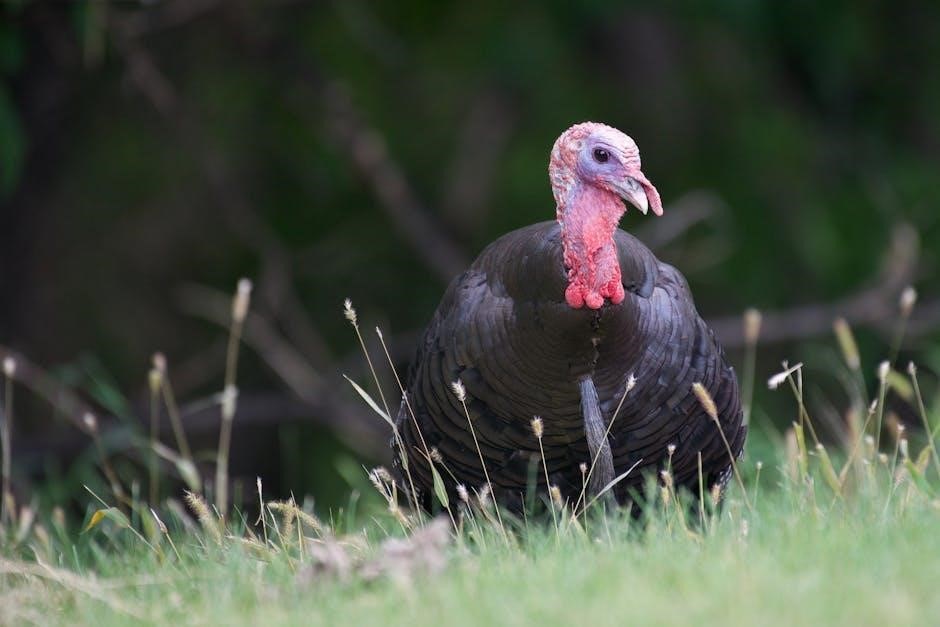How to Become a Hunting Guide
Embarking on a career as a hunting guide requires careful
preparation and dedication. This journey involves acquiring
essential hunting skills, understanding regulations, and
developing strong communication abilities. Let’s explore the
necessary steps to pursue this rewarding outdoor profession and
achieve success.
Acquire Necessary Hunting Skills and Experience
Before aspiring to guide others, it’s paramount to possess
extensive personal hunting experience. This foundational knowledge
is gained through years of dedicated practice in the field,
honing skills in tracking, navigating diverse terrains, and
identifying local flora and fauna. A proficient hunting guide must
be adept at ethical hunting techniques, including stalking,
understanding animal behavior, and ensuring responsible game
management.
Moreover, mastering marksmanship is crucial for both personal safety
and client success. Regular practice is essential to improve
accuracy and proficiency with various firearms and archery
equipment. Develop expertise in reading maps, using GPS devices,
and employing compass navigation to confidently lead clients through
unfamiliar territories. This expertise builds trust and
demonstrates a deep understanding of the hunting environment.

Furthermore, experience in various hunting scenarios and with
different game species is invaluable. Exposure to diverse hunting
conditions prepares you to handle unexpected challenges and adapt
to changing circumstances, enhancing your credibility as a capable
and reliable hunting guide.
Meet Age and Residency Requirements
Most states mandate that aspiring hunting guides meet specific age
and residency criteria before obtaining a license. Typically,
applicants must be at least 18 years old to ensure they possess
the maturity and responsibility required for guiding hunters.
Additionally, many states require guides to be residents,
demonstrating a commitment to the local community and its wildlife
resources.
Residency requirements vary by state, often involving a minimum
period of living within the state, such as six months or a year.
This ensures that guides are familiar with the local terrain,
wildlife, and regulations. Some states may offer exceptions for
individuals who have close ties to the area, such as owning
property or having family members residing there.
It is crucial to thoroughly research the specific age and residency
requirements of the state where you intend to guide. Contact the
state’s wildlife agency or licensing board for accurate and
up-to-date information. Meeting these fundamental requirements is a
prerequisite for pursuing a career as a hunting guide and ensures
compliance with state regulations.

Obtain a Valid Hunting License
A fundamental requirement for becoming a hunting guide is possessing
a valid hunting license in the state where you plan to operate.
This license serves as proof that you have met the state’s basic
requirements for hunting and are authorized to participate in
hunting activities. Obtaining a hunting license typically involves
completing a hunter education course and passing a written exam.
The specific requirements for obtaining a hunting license vary by
state, but generally include demonstrating knowledge of hunting
regulations, safety practices, and ethical hunting principles. The
hunter education course covers topics such as firearm safety,
wildlife identification, and responsible hunting behavior. Passing
the written exam confirms your understanding of these essential
concepts.
In addition to the general hunting license, some states may require
specific licenses or endorsements for guiding hunters. These
additional requirements may depend on the type of game being hunted
or the area where the guiding activities will take place. It is
crucial to research the specific licensing requirements of the state
where you intend to guide and ensure that you obtain all necessary
licenses and endorsements.
Complete a Hunter Education Course
A critical step toward becoming a hunting guide involves completing
a hunter education course. These courses, mandated by most states,
provide essential knowledge and skills for safe and responsible
hunting practices. They cover a wide range of topics, from firearm
safety and wildlife identification to ethical hunting behavior and
understanding hunting regulations.
Hunter education courses aim to instill in participants a deep
respect for wildlife and the environment. They emphasize the
importance of fair chase, responsible harvesting, and minimizing
impact on ecosystems. The courses also address the legal and
ethical responsibilities of hunters, ensuring they understand and
adhere to all applicable laws and regulations.
Completing a hunter education course not only fulfills a licensing
requirement but also demonstrates a commitment to responsible
hunting. This commitment is crucial for building trust with clients
and establishing credibility as a knowledgeable and ethical hunting
guide. By mastering the principles taught in these courses, aspiring
guides can ensure the safety of themselves and their clients while
promoting the conservation of wildlife resources.
Certification in First Aid and CPR
Obtaining certifications in First Aid and CPR is an indispensable
requirement for aspiring hunting guides. These certifications equip
individuals with the essential skills and knowledge to respond
effectively to medical emergencies that may arise in the field.
Given the remote and often challenging environments where hunting
takes place, the ability to provide immediate medical assistance
can be life-saving.
First Aid certification provides training in addressing common
injuries and illnesses, such as cuts, sprains, fractures, and
allergic reactions. CPR certification teaches the techniques
necessary to restore breathing and circulation in individuals
experiencing cardiac arrest. These skills are crucial for
stabilizing patients until professional medical help can be
reached.
Many states mandate First Aid and CPR certifications for hunting
guides to ensure they are prepared to handle medical emergencies.
Beyond the legal requirement, these certifications demonstrate a
commitment to the safety and well-being of clients. By being
proficient in First Aid and CPR, hunting guides can provide a safe
and secure hunting experience, instilling confidence in their
clients and enhancing their reputation as responsible professionals.

Pass a Hunting Guide Exam (If Required)
In certain states, aspiring hunting guides must successfully pass a
comprehensive examination to demonstrate their knowledge and
competency in relevant areas. This exam serves as a crucial step
in the licensing process, ensuring that only qualified individuals
are authorized to guide hunting activities. The content of the
hunting guide exam typically covers a wide range of topics,
including wildlife identification, hunting regulations, ethical
hunting practices, first aid and safety procedures, and knowledge
of local terrain and ecosystems.
Candidates are expected to possess a thorough understanding of
these subjects to ensure they can provide a safe, responsible, and
enjoyable hunting experience for their clients. The exam may
consist of multiple-choice questions, essay questions, and
practical scenarios designed to assess the candidate’s ability to
apply their knowledge in real-world situations.
To prepare for the hunting guide exam, it is essential to study
the relevant state regulations, attend training courses, and gain
practical experience in the field. Familiarizing yourself with the
local flora and fauna, as well as the specific hunting techniques
appropriate for the region, will significantly improve your
chances of success. Passing the hunting guide exam demonstrates
your commitment to professionalism and ensures that you meet the
standards required to guide hunters safely and effectively.
Understand State-Specific Regulations
Navigating the path to becoming a hunting guide necessitates a
comprehensive understanding of the specific regulations governing
hunting activities within the state where you intend to operate.
Each state possesses its own unique set of rules and guidelines,
designed to ensure the conservation of wildlife populations,
promote ethical hunting practices, and maintain the safety of both
hunters and the environment.
These regulations may encompass a wide array of aspects, including
licensing requirements, hunting seasons, bag limits, permissible
hunting methods, and restrictions on hunting certain species or in
specific areas. It is imperative to familiarize yourself with the
state’s wildlife agency and its publications, which typically
provide detailed information on hunting regulations. Attending
workshops or seminars offered by the agency can also prove
invaluable in gaining a thorough understanding of the rules.
Furthermore, staying abreast of any changes or updates to the
regulations is crucial, as they may be subject to modifications
over time. By demonstrating a commitment to upholding state-
specific regulations, you not only ensure compliance but also
contribute to the responsible management of wildlife resources and
the preservation of hunting opportunities for future generations.
A deep understanding of these regulations is a cornerstone of
professionalism for any aspiring hunting guide.
Develop Excellent Communication Skills
Effective communication stands as a cornerstone of success for any
aspiring hunting guide. Beyond possessing extensive knowledge of
hunting techniques and wildlife, the ability to clearly and
concisely convey information to clients is paramount. A hunting
guide acts as both an educator and a leader, responsible for
ensuring the safety, understanding, and overall enjoyment of the
hunting experience for their clients.
Excellent communication skills encompass active listening, clear
articulation, and the ability to adapt one’s communication style to
suit the diverse needs and backgrounds of clients. This includes
providing comprehensive pre-hunt briefings, explaining safety
protocols, offering guidance on ethical hunting practices, and
answering questions with patience and clarity. Furthermore, a
proficient hunting guide can effectively communicate the nuances of
the hunting environment, such as identifying animal tracks,
interpreting wildlife behavior, and adapting strategies based on
changing conditions.
Moreover, strong interpersonal skills are essential for building
rapport with clients and fostering a positive and collaborative
atmosphere. This involves demonstrating empathy, respect, and a
genuine interest in their hunting goals and experiences. By
cultivating exceptional communication skills, hunting guides can
enhance the client’s overall experience, build trust, and establish
lasting professional relationships, contributing significantly to
their reputation and career advancement.
Build Knowledge of Local Terrain and Wildlife
A deep and comprehensive understanding of the local terrain and
wildlife is absolutely crucial for any aspiring hunting guide. This
knowledge forms the bedrock upon which successful and safe hunting
experiences are built. A hunting guide must possess an intimate
familiarity with the specific geographical features, vegetation
patterns, and climatic conditions of the areas they operate in.
This includes the ability to navigate effectively using maps, compass,
and GPS devices, as well as the skills to identify potential hazards
such as steep slopes, water crossings, and unpredictable weather
patterns. Furthermore, a hunting guide must be adept at recognizing
and interpreting animal tracks, scat, and other signs of wildlife
activity. This allows them to locate game animals efficiently and
predict their movements based on seasonal changes and environmental
factors.
In addition to terrain expertise, a thorough understanding of local
wildlife species is essential. This includes knowledge of their
habitats, feeding habits, breeding cycles, and behavior patterns. A
hunting guide must be able to distinguish between different species,
recognize signs of disease or distress, and understand the
regulations pertaining to hunting each species. By cultivating a
deep understanding of the local terrain and wildlife, hunting guides
can provide their clients with valuable insights, enhance their
hunting success, and ensure responsible and ethical hunting
practices.
Gain Experience as a Packer or Assistant Guide
Before taking on the full responsibilities of a hunting guide, it’s
highly beneficial to gain practical experience as a packer or
assistant guide. These roles provide invaluable opportunities to learn
the ropes of the guiding profession from seasoned professionals. As a
packer, you’ll be responsible for transporting gear, supplies, and
game, often in challenging terrain. This experience will build your
physical stamina, navigation skills, and knowledge of the local
environment;
Working as an assistant guide allows you to observe and assist
experienced guides in all aspects of their work. You’ll learn how to
interact with clients, manage logistics, ensure safety, and provide
guidance on hunting techniques. This hands-on experience will help
you develop your communication skills, problem-solving abilities, and
decision-making skills under pressure.

Furthermore, working as a packer or assistant guide demonstrates your
commitment to the profession and provides valuable networking
opportunities. You’ll have the chance to build relationships with
outfitters, guides, and clients, which can lead to future employment
opportunities. By gaining experience in these support roles, you’ll
be well-prepared to take on the challenges and rewards of being a
hunting guide. This experience will also help you determine if this
career path is truly the right fit for you before investing further
time and resources.
Consider Specialization in a Specific Area or Species
As you gain experience as a hunting guide, consider specializing in a
specific area or species; Specialization can set you apart from the
competition and attract clients seeking expertise in a particular type
of hunt. For example, you could focus on guiding elk hunts in the
Rocky Mountains, waterfowl hunts in the Mississippi Flyway, or deer
hunts in the Texas Hill Country.
Alternatively, you could specialize in hunting a specific species, such
as brown bears in Alaska, Dall sheep in the Yukon, or wild turkeys in
the Southeast. To become a specialist, you’ll need to develop in-depth
knowledge of the area or species you’re focusing on. This includes
understanding their behavior, habitat, and the best hunting
techniques for that particular area or species.
Specialization can also lead to higher earning potential. Clients are
often willing to pay more for a guide who is an expert in their
desired area or species. Additionally, specialization can make you a
more valuable asset to outfitters and hunting lodges. By focusing your
expertise, you can build a strong reputation and become a sought-after
guide in your chosen niche. This targeted approach will help you
establish yourself as a leader in the field and create a sustainable
and rewarding career.